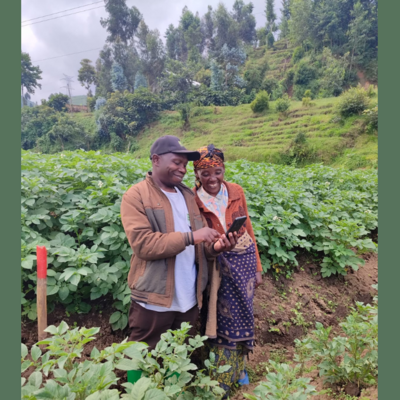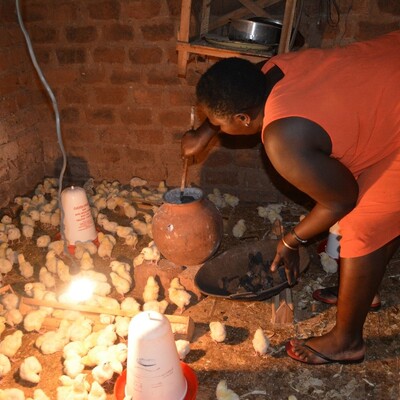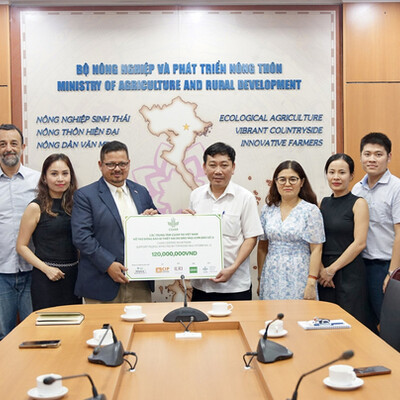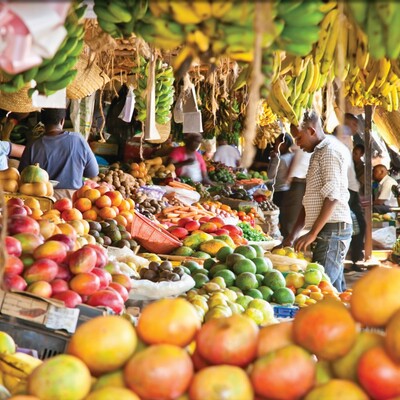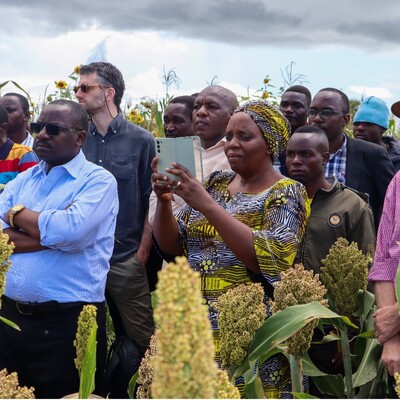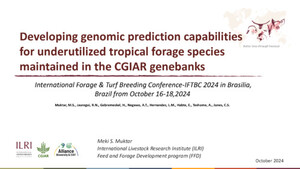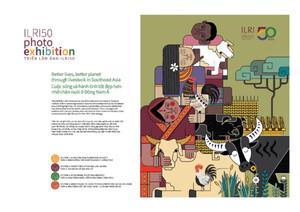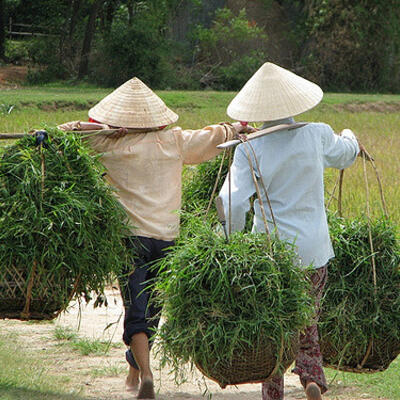
Facilitating multi-stakeholder processes: Training around uncertainty and complexity
From 13 to 15 August 2012, the Knowledge Management and Information Services (KMIS) of the International Livestock Research Institute (ILRI) supported a training workshop for the ‘European Union and African Union cooperative research to increase food production in irrigated farming systems in Africa’ (EAU4Food) project which takes place in five countries (Ethiopia, Mali, Mozambique, South Africa and Tunisia).
The project, led by the Overseas Development Institute (ODI) in the United Kingdom, uses a trans-disciplinary approach to “develop, test and implement locally-appropriate, robust and affordable innovations for improved farm performance in irrigated areas, building on existing and traditional practices and irrigation strategies, and driven by farmers and key stakeholders.” At the heart of the approach, EAU4Food is relying on learning and practice alliances (or LPAs, at regional or national level) and communities of practice (or CoPs, at local level) – multistakeholder platforms that are very similar to the innovation platforms that ILRI has been using in other projects.
The training workshop aimed to equip the facilitators (from Ethiopia, Mozambique and South Africa) of these platforms with a useful set of concepts, tools and skills to perform effectively and navigate around the uncertainty and complexity that is inherent to such processes. Multi-stakeholder processes (MSP) are indeed complex, perhaps even ‘complex adaptive systems‘. They are usually put in place to deal with complex agendas, perhaps even ‘wicked problems’. In these circumstances, the job of MSP facilitator is not straightforward and it requires a certain mindset to embrace complexity and deal with uncertainty.
Over the three days, participants went through various sessions to work around complexity and uncertainty:
- An introduction to dealing with complexity and uncertainty (the video above);
- Explaining what the CoPs and LPAs are and what are key ingredients to make them work;
- Introducing the ideal profile and skillset of a facilitator of these platforms;
- Understanding how to better facilitate meetings;
- Zooming in on other aspects of facilitating the wider process of engagement with multiple stakeholders;
- Using communication and monitoring/documentation to support the project (organizing useful conversations);
- Organizing peer-support mechanisms, including a peer assist;
- Evaluation and close.
ILRI is not involved in the EAU4Food project. Nevertheless, various ILRI projects use innovation platforms and the teams involved in these projects have stressed the importance of documenting experiences of facilitating such multi-stakeholder processes and of developing training materials. This training workshop is contributing to that end. Other materials developed by ODI for the EAU4Food project might also prove useful to inform subsequent ILRI training or awareness-raising for innovation platform facilitators.
Challenges and lessons learned
The workshop was somewhat challenging with respect to the different focus and level of work for CoP (more local) and LPA facilitators; the workshop had to cater for both needs. The three countries are at different stages of engagement with their platforms and participants had very different experiences. As any workshop, but more so because this was a training workshop, the agenda was full of ‘information to share’, which had to be balanced with the capacity of participants to absorb, own and question that information. Unfortunately there was too little time to really practice event and process facilitation methods. Participants emphasized the importance of examples and stories to share aspects of the facilitators’ job – the experience of another MSP facilitator from another project was very well received in this respect. In contrast, the facilitator had not been working on MSPs since joining ILRI and it took a tiny bit of ‘dusting off’ to refresh his knowledge about the topic and prepare adequate materials and mention some stories.
The training workshop also highlighted a number of relevant lessons about the topic of facilitating MSPs:
- The importance of having sometimes a ‘patron’ support the facilitator to give them extra credibility and open doors among key stakeholders;
- The necessity to focus on engagement between meetings, to ensure the latter run smoothly and keep the group gelling and moving forward;
- The subtle balance between respecting inputs from everyone and holding the space and being recognized as one player (not just a secretary at the same time);
- The challenges of dealing with power issues (having all the important actors around without biasing the course of the process towards their needs only);
- The sensitive issue of sustainability of the platform which needs to be elucidated early on as it usually takes a lot of time before sufficient interest and resources can support the handover of the platforms at the end of the projects that set them up;
- How to manage expectations – one of the most delicate acts of facilitating MSPs – particularly for research projects that do not have ‘implementation’ budget and are therefore likely to deceive stakeholders (e.g. farmers) who are looking for concrete contributions from such projects… and the related potential risk of ‘platform fatigue’ if too many platforms are out there, organize too many meetings with the same stakeholders and lead to too few results…
Participants were pleased with the workshop as shown in their evaluation of the workshop and they commended the facilitation, documentation and organization of such a workshop.
In the future, training courses like this may become an important piece of the ILRI ‘support infrastructure.’ One small brick in the engagement wall to get ahead of uncertainty and complexity.
Read notes from all workshop sessions and background materials on the project wiki.
Find the presentations that were used in this workshop: http://www.slideshare.net/ilri (this presentation, presentation about MSPs and presentation about facilitating MSPs)
See some pictures from the event.
Find out more about the EAU4Food project: http://www.eau4food.info/





